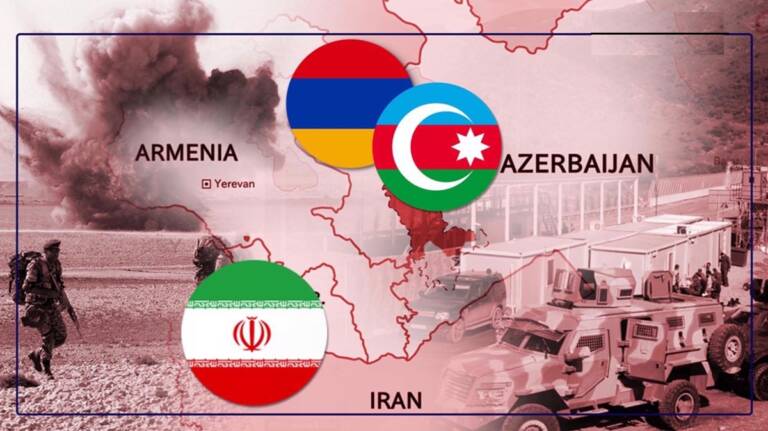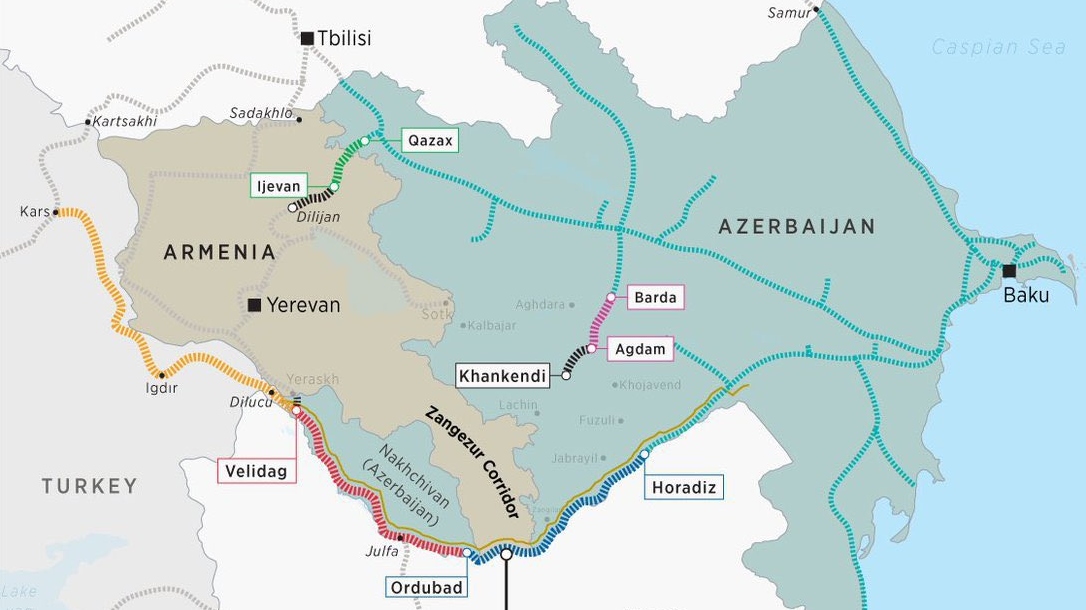Iran, Armenia and Azerbaijan: a difficult balance of power in the Caucasus

Iran, extremely active in the Middle Eastern sector, must adapt to a different reality in the Caucasian quadrant, where the situation is rapidly evolving.
Two major developments in recent years – Azerbaijan's recapture of Nagorno-Karabakh and Russia's unprovoked invasion of Ukraine – have created new diplomatic openings for Iran. The changed geopolitical environment has allowed Iran and Azerbaijan to iron out what for much of the post-Soviet period had been a thorny relationship. At the same time, Iran's traditionally close ties with Armenia are increasingly strained. But things are always evolving.
In March, the foreign ministers of Iran and Azerbaijan, Hossein Amir-Abdollahian and Jeyhun Bayramov, met on the sidelines of the Organization of the Islamic Conference meeting in Saudi Arabia, agreeing on the return of Azerbaijani diplomatic personnel to Tehran. Baku had withdrawn its diplomats after an armed attack on the embassy in early 2023, which left one Azerbaijani citizen dead.
The diplomatic reboot occurred not long after Baku and Tehran resolved another tension by signing an agreement last fall to build a rail link known as the Aras corridor. The route will connect mainland Azerbaijan to its exclave of Nakhchivan through Iranian territory. Previously, Azerbaijan had tried to build a more direct route, known as the Zangezur corridor, by gaining extraterritorial rights from Armenia. Iran had opposed Zangezur because it feared it would create a barrier to Iranian-Armenian trade.
Problems with Armenia
While relations between Iran and Azerbaijan are improving, those between Iran and Armenia have had problems.
On the same day in March that the foreign ministers of Azerbaijan and Iran restored full diplomatic relations, Armenia's Defense Minister Suren Papikyan traveled to Tehran for a meeting with senior Iranian officials, who issued a firm warning that Yerevan should not get too close to " extra-regional parties". The phrase was a clear reference to Yerevan's recent cultivation of security ties with Western powers, including France and the United States. Armenian Prime Minister Nikol Pashinyan acknowledged tensions with Tehran.
Other geopolitical factors are pushing Tehran and Yerevan in divergent directions. First, tensions in the Middle East related to the conflict between Israel and Hamas have raised the possibility of widening the war to involve Iranian allies and perhaps even Iran itself. This has prompted Tehran to hedge its risks by taking measures to ensure calm on its northern border. Let us remember that, however, Baku and Washington have good relations and that in northern Iran there is a strong Azeri minority that could become the target of a pro-Western mobilization.
Armenia has also experienced a rapid deterioration of relations with Russia, due to the widespread perception among Armenians that Moscow failed to live up to its security commitments to Yerevan during the most recent phase of the Karabakh conflict. As a result, Armenia is trying to diversify its foreign partners, especially Western powers.
Armenia's recently expressed intention to apply for membership of the European Union could be a lasting irritant in Yerevan's ties with Tehran, although this request, at this stage, appears unrealistic. The accession process would require Armenia to make major changes to align its foreign policy with Brussels. Among these requirements would be the abolition of Armenia's visa-free regime with Iran and the reorientation of Yerevan's trade away from the Moscow-led Eurasian Economic Union, with which Iran has signed a free trade agreement exchange.
The souring of Armenian-Russian relations contrasts sharply with Tehran's strengthening ties with Moscow, a trend driven in part by the development of the North-South trade route, which helps Russia mitigate the impact of Western sanctions. The expansion of this type of trade encourages closer cooperation between Iran and Azerbaijan to facilitate the transit of goods destined for Russia.
As two heavily sanctioned countries, Iran and Russia are united by a sense of “inter-pariah solidarity.” Iran supplied Russia with drones that the latter used against Ukraine. In return, Iran expects Russia to play a key role in upgrading its air defense systems. In 2023, Russia has overtaken China as the main foreign investor in Iran, also because Moscow has considerable know-how in the energy sector. Conversely, Iran's prospects for engagement with the West have diminished.
Tehran tries to balance itself
Despite improving ties with Baku and Yerevan's diplomatic coup, it would be premature to assume that Tehran is willing to change its Caucasus policy to firmly side with Azerbaijan at Armenia's expense. Iran does not view the geopolitics of the Caucasus as a zero-sum game. Iranian officials, for example, continue to consistently support Armenia's sovereignty and territorial integrity. Even as Tehran pursues normalization with Baku, Iranian officials are determined to do everything they can to keep the country's trade route to Armenia open and flowing.
Despite the Aras transit corridor agreement with Azerbaijan, Iran wants to diversify its trade network, hoping to develop another railway route through Armenia and Georgia to the Black Sea. The Iranian ambassador to Armenia , Mehdi Sobhani, recently reiterated these points, to the irritation of Baku's pro-government media.
For Tehran, Azerbaijan's strong strategic relations with Israel are a factor capable of quickly shaking up Iranian-Azerbaijani relations. Volatility in the Middle East, highlighted by the recent Israeli missile attack on an Iranian consulate in Syria that killed two Iranian generals, may bring Iran into direct conflict with Israel, upsetting Azerbaijan's ability to be friends with two enemies.
In this context, although Iran may not be enthusiastic about the growing Western, particularly French, presence in Armenia, such presence goes some way to balancing Azerbaijani influence in the Caucasus. Indeed, support for Armenia's sovereignty is one of the few things the West and Iran seem to agree on today.

Thanks to our Telegram channel you can stay updated on the publication of new Economic Scenarios articles.
The article Iran, Armenia and Azerbiagian: a difficult balance of power in the Caucasus comes from Economic Scenarios .
This is a machine translation of a post published on Scenari Economici at the URL https://scenarieconomici.it/iran-armenia-e-azerbiagian-un-difficile-equilibrio-di-potere-nel-caucaso/ on Sun, 07 Apr 2024 08:00:05 +0000.

